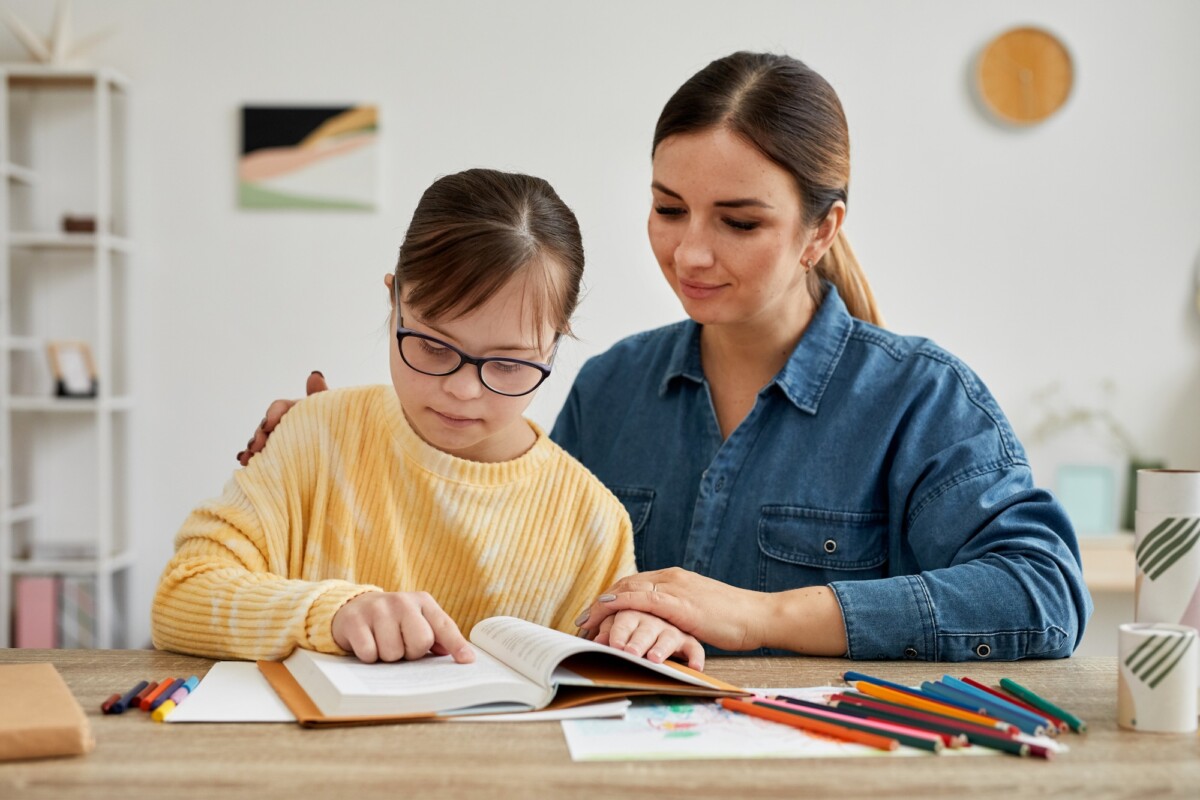Creative Curriculum Lessons are essential in enhancing preschool learning by offering a structured yet flexible approach to early childhood education. These lessons engage young learners through hands-on activities that spark curiosity and creativity, making learning enjoyable and effective.
Engaging Learning Experiences
Focusing on interactive experiences, Creative Curriculum Lessons cater to various learning styles. By incorporating play-based activities, children develop critical thinking and problem-solving skills, fostering a love for learning and preparing them for future academic success.
Holistic Development
These lessons support children’s holistic development by addressing multiple domains:
- Cognitive Skills: Encouraging exploration and inquiry.
- Social Skills: Promoting teamwork and communication.
- Emotional Growth: Helping children express feelings and build resilience.
Incorporating Creative Curriculum Lessons into daycare curriculum programs ensures a well-rounded education that nurtures overall development.
Tailored Learning Approaches
These lessons are adaptable, allowing educators to customize activities to meet each child’s unique needs, ensuring meaningful engagement regardless of learning pace.
Encouraging Family Involvement
Emphasizing family involvement, Creative Curriculum Lessons encourage parents to participate in learning activities, creating a supportive home environment that reinforces preschool learning.
Building a Strong Foundation
Ultimately, these lessons lay a strong foundation for lifelong learning, fostering curiosity, creativity, and critical thinking skills essential for future success in a rapidly changing world.
Contact Now to Pursue Your Dream Degree From Your Nearest College
How Do Creative Curriculum Lessons Cater to Diverse Learning Styles?
Creative Curriculum Lessons play a vital role in enhancing preschool learning by addressing the unique needs of each child. In early childhood education, it’s essential to recognize that children learn differently. By incorporating various teaching methods, Creative Curriculum Lessons ensure that every child can engage and thrive in a stimulating environment.
Visual Learners
Creative Curriculum Lessons often include colorful visuals and hands-on activities. This approach helps visual learners grasp concepts better, making learning more enjoyable and effective.
Auditory Learners
For auditory learners, these lessons incorporate songs, storytelling, and discussions. This auditory engagement fosters language development and comprehension skills, crucial in early childhood education.
Kinesthetic Learners
Kinesthetic learners benefit from movement-based activities. Creative Curriculum Lessons often involve play and physical interaction, allowing these children to learn through exploration and hands-on experiences.
Benefits of a Diverse Approach
- Engagement: Keeps children interested and motivated.
- Inclusivity: Supports all learning styles, ensuring no child is left behind.
- Skill Development: Encourages a range of skills, from social to cognitive, essential for future learning.
Read Also: The Difference Between Regional and National Accreditation?
Engaging Activities: What Makes Creative Curriculum Lessons Stand Out?
Creative Curriculum Lessons play a pivotal role in enhancing preschool learning by fostering an engaging and interactive environment. These lessons are designed to stimulate curiosity and creativity, making them essential in early childhood education. By incorporating hands-on activities, children are more likely to retain information and develop critical thinking skills.
Hands-On Learning Experiences
Creative Curriculum Lessons emphasize hands-on learning experiences. This approach allows children to explore concepts through play, which is vital in daycare curriculum programs. Activities such as building blocks or art projects encourage problem-solving and collaboration among peers.
Thematic Units
Thematic units in Creative Curriculum Lessons create connections between different subjects. For instance, a unit on animals can integrate science, art, and literacy, making learning holistic and relevant. This interconnectedness helps children understand the world around them better.
Flexibility and Adaptability
These lessons are flexible and can be adapted to meet the diverse needs of children. Educators can modify activities based on individual interests and developmental stages, ensuring that every child is engaged and learning effectively. This adaptability is crucial in early childhood education settings.
The Impact of Play-Based Learning in Creative Curriculum Lessons
Creative Curriculum Lessons play a pivotal role in enhancing preschool learning by fostering an engaging and interactive environment. These lessons are designed to stimulate curiosity and creativity, which are essential components of Early Childhood Education. Through play-based learning, children explore concepts in a hands-on manner, making learning both enjoyable and effective.
Engaging Learning Experiences
- Hands-On Activities: Children learn best when they can touch, manipulate, and experiment. Creative Curriculum Lessons incorporate activities that allow for exploration and discovery.
- Social Interaction: Play encourages collaboration among peers, helping children develop essential social skills.
Holistic Development
- Cognitive Growth: Engaging in creative play enhances problem-solving skills and critical thinking.
- Emotional and Physical Development: Activities in daycare curriculum programs promote motor skills and emotional intelligence, preparing children for future challenges.
By integrating these elements, Creative Curriculum Lessons not only support academic learning but also nurture emotional and social development. This comprehensive approach ensures that children are well-rounded and ready for the next stages of their education. Ultimately, the impact of play-based learning in preschool settings cannot be overstated, as it lays a strong foundation for lifelong learning.
Contact Now to Pursue Your Dream Degree From Your Nearest College
Can Creative Curriculum Lessons Improve Social Skills in Preschoolers?
Creative Curriculum Lessons play a pivotal role in enhancing preschool learning, particularly in developing social skills. These lessons are designed to foster interaction among children, encouraging them to communicate, collaborate, and resolve conflicts. As preschoolers engage in various activities, they learn to express their feelings and understand others, which is essential for their overall development.
The Role of Play in Social Skills Development
Play is a fundamental aspect of Creative Curriculum Lessons. Through structured play, children can:
- Practice Communication: Sharing ideas and negotiating roles.
- Build Relationships: Forming friendships through cooperative activities.
- Develop Empathy: Understanding and responding to the emotions of peers.
Benefits of Creative Curriculum Lessons in Social Skills
Implementing Creative Curriculum Lessons within daycare curriculum programs not only enhances social skills but also supports emotional intelligence. Children learn to:
- Work as a Team: Collaborating on projects fosters teamwork.
- Resolve Conflicts: Learning to navigate disagreements promotes problem-solving skills.
- Enhance Self-Regulation: Managing emotions during group activities leads to better self-control.
In summary, Creative Curriculum Lessons are instrumental in nurturing social skills in preschoolers, laying a strong foundation for their future interactions and relationships.
Read Also: Where Can You Find a Free AI Language Tutor?
Measuring Success: Outcomes of Implementing Creative Curriculum Lessons
Creative Curriculum Lessons play a pivotal role in enhancing preschool learning by fostering a dynamic and engaging environment. These lessons are designed to align with the developmental needs of young children, making them an essential component of effective Early Childhood Education. By incorporating hands-on activities and interactive experiences, children are more likely to retain information and develop critical thinking skills.
Key Outcomes of Creative Curriculum Lessons
- Holistic Development: Creative Curriculum Lessons support cognitive, social, emotional, and physical growth, ensuring a well-rounded educational experience.
- Enhanced Engagement: Children are more engaged when lessons are fun and interactive, leading to improved participation and enthusiasm for learning.
- Individualized Learning: These lessons allow educators to tailor activities to meet the diverse needs of each child, accommodating different learning styles and paces.
Benefits for Daycare Curriculum Programs
- Structured Learning: Creative Curriculum Lessons provide a structured framework that guides educators in delivering quality education.
- Skill Development: Children develop essential skills such as problem-solving, communication, and collaboration through group activities and projects.
- Positive Learning Environment: A focus on creativity and exploration fosters a positive atmosphere where children feel safe to express themselves and take risks in their learning.
Discover How CollegeDegree.Education Supports Educators in Enhancing Preschool Learning
Creative Curriculum Lessons are essential in enhancing preschool learning by providing structured yet flexible frameworks that address the diverse needs of young learners. These lessons foster creativity, critical thinking, and social skills, which are crucial in Early Childhood Education. At CollegeDegree.Education, we recognize the significance of these elements in shaping a child’s educational journey.
Benefits of Creative Curriculum Lessons
- Engagement: These lessons engage children through hands-on activities that spark curiosity and imagination.
- Holistic Development: They support cognitive, emotional, and social growth, ensuring a well-rounded educational experience.
- Adaptability: Easily integrated into various daycare curriculum programs, they allow educators to customize lessons to meet individual needs.
By incorporating Creative Curriculum Lessons, educators create enriching environments that promote exploration and learning. At CollegeDegree.Education, we offer resources and support to help implement these strategies effectively, enhancing the learning experience for every child. Additionally, these lessons emphasize social skills development, teaching children to collaborate and communicate, which is vital for future relationships. They also cater to diverse learning styles, ensuring that every child, regardless of their preferred learning method, can thrive.
Contact Now to Pursue Your Dream Degree From Your Nearest College
FAQs
-
What is the Creative Curriculum?
The Creative Curriculum is a research-based early childhood education framework that emphasizes hands-on, project-based learning to support children’s development and learning. -
What age groups does the Creative Curriculum cover?
It is designed for infants, toddlers, preschoolers, and pre-kindergarten students, with adaptations available for early elementary grades. -
What are the key components of the Creative Curriculum?
The curriculum focuses on literacy, math, science, social studies, social-emotional development, physical development, and the arts through interactive and play-based learning. -
How does the Creative Curriculum support different learning styles?
It provides a mix of hands-on activities, guided play, group discussions, and individualized instruction to accommodate visual, auditory, and kinesthetic learners. -
Is the Creative Curriculum aligned with educational standards?
Yes, it aligns with state early learning standards, Head Start Early Learning Outcomes Framework, and Common Core State Standards for early education.


